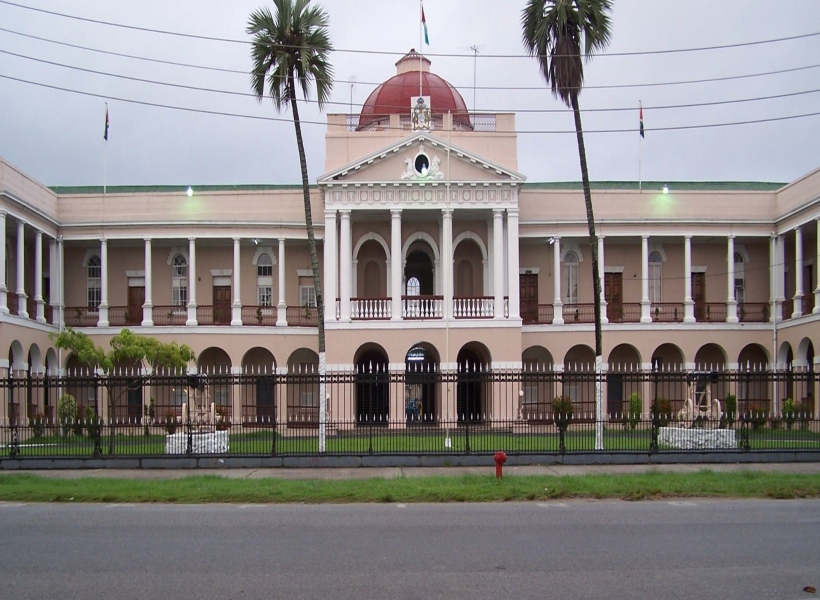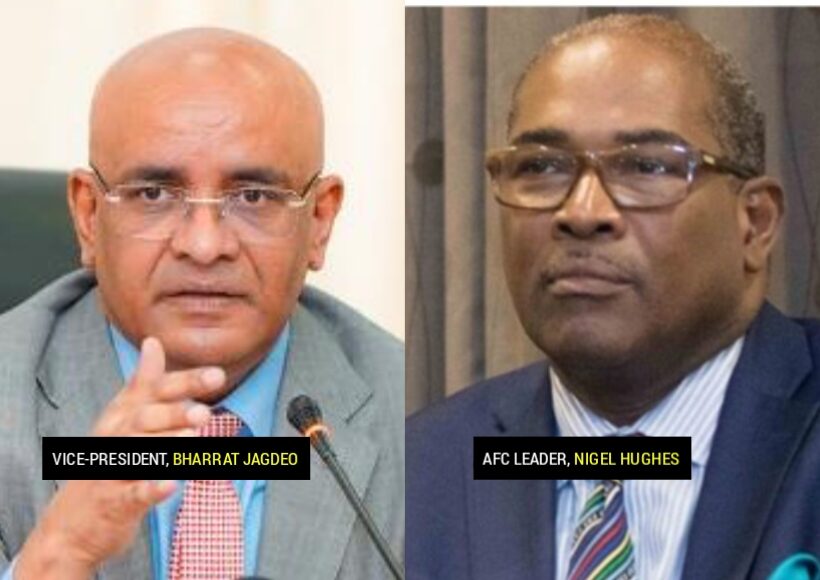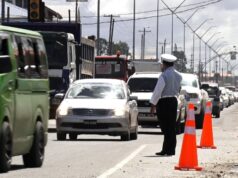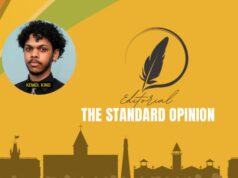Vice President, Dr. Bharrat Jagdeo stated on Thursday that the recent proposal made by Alliance for Change (AFC) Leader, Nigel Hughes for the transfer of Guyana’s oil revenues to citizens is not only impractical but wholly unwise.
Hughes had proposed that a portion of the nation’s oil money should be directly transferred to citizens by law, rather than being allocated at the discretion of politicians. He argued that despite significant earnings, ordinary citizens are not feeling the benefits.
However, during his press conference yesterday, Jagdeo argued that Hughes’ approach is simplistic and fails to account for the broader economic context and the need of prudent financial planning.
In a Facebook post this week, Hughes highlighted the revenues generated from Guyana’s burgeoning oil industry, noting that the currently country earns GYD$64.8 million per hour, equating to an annual revenue of GYD$568.03 billion. He said that despite this, many citizens still feel no positive impact on their lives. Hughes questioned the allocation of these funds, noting that over 90% of the Natural Resource Fund (NRF) was spent last year with no savings. He proposed that the government should mandate by law that a portion of these proceeds be distributed directly to every adult citizen, suggesting a payment not exceeding 10.5% of the annual transfer to the NRF and a mandatory saving of at least 10%.
“The money belongs to all the people of Guyana,” Hughes asserted. “Not just the people the politicians choose to give it to.”
In responding to Hughes’ comments, Jagdeo first highlighted that while the People’s Progressive/Party Civic (PPP/C) may have access to the nation’s substantial oil revenues now and the former coalition government did not, the current government is faced with much more challenges that demand more financial injections into the country. Meanwhile, he said, the opposition created a much more difficult situation for Guyanese through taxes and not creating enough opportunities.
He noted the opposition’s inconsistent stance on the oil and gas industry, accusing it of lacking a coherent plan for wealth generation. He criticized the lopsided Stabroek Block agreement signed by the previous administration, which he claimed has now tied the current government’s hands.
“Look at their position on oil and gas; every week it changes. They don’t even have a plan on the oil and gas industry, and they made the biggest mess by signing that lopsided agreement,” Jagdeo said. “He (Hughes) wants us to share all the money, no plan to produce wealth in the long run.”
Jagdeo argued that distributing the oil revenues as Hughes suggested would be imprudent, particularly when considering the broader economic demands faced by the government. He pointed out that significant portions of the budget are already allocated to essential sectors such as healthcare and education. For instance, this year’s budget includes $129 billion for health and $135 billion for education. Additionally, the increase in wages and salaries from 2020 to now has added $90 billion to the public sector’s expenditure.
Jagdeo further emphasized the complexity of the situation by explaining that while Guyana collects substantial revenues from oil, these funds cover only a fraction of the overall budget. “All of the revenue we collect from Exxon can only fund less than 30% of the budget,” he noted. He criticized Hughes for not considering the ongoing and necessary expenditures, which often surpass the revenues generated from oil.
Jagdeo also underscored the need for a long-term economic strategy that focuses on wealth generation and diversification, rather than short-term handouts. He highlighted the potential volatility of oil prices and the risk of over-relying on oil revenues. “What if oil prices fall due to oversupply? What will people be left with?” Jagdeo questioned.
The Vice President also addressed Hughes’ calculation of the proposed direct cash transfers. He explained that even if 10.5% of the NRF’s annual transfer were distributed, it would amount to roughly G$35,000 per person per year, a figure he deemed insufficient. “Some of our people will get much more than this, significantly more than this,” Jagdeo stated, referring to the benefits to be gained through his government’s development strategies.
In giving a broader critique of the opposition’s approach to economic policy, he accused it of focusing solely on spending without considering the implications for wealth creation and sustainability. “Here is a person who accuses the PPP of short-termism. They need a development plan. They don’t have one to generate wealth as yet,” Jagdeo asserted.
He called for a more nuanced understanding of the budget and expenditure, emphasizing that the current administration’s spending is aimed at addressing critical needs and fostering long-term growth. “We need to think about generating wealth for the country, not just spending it,” he said.













